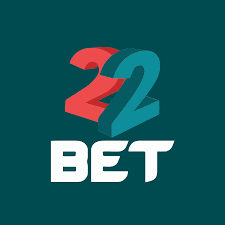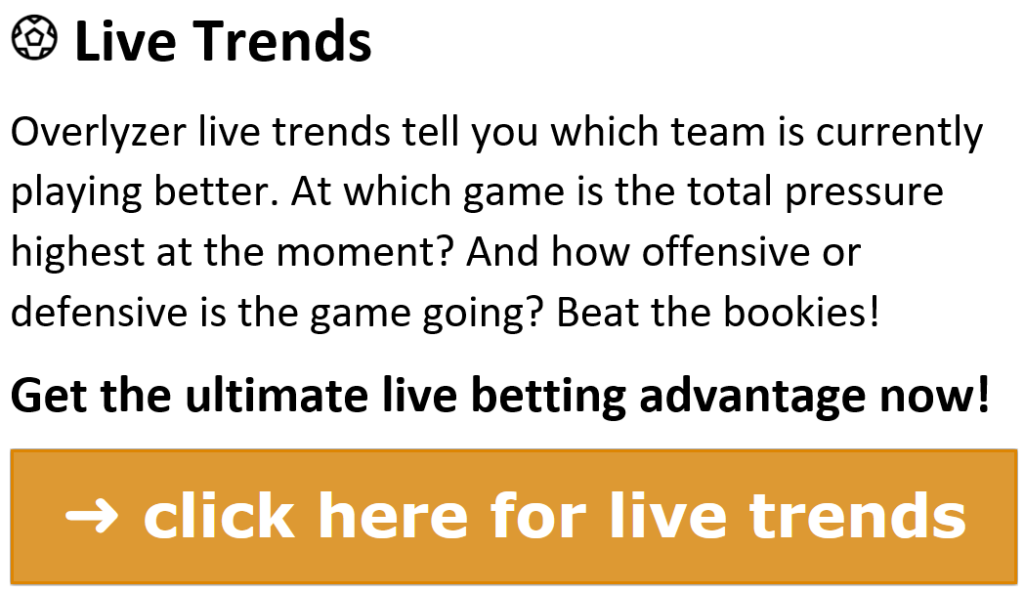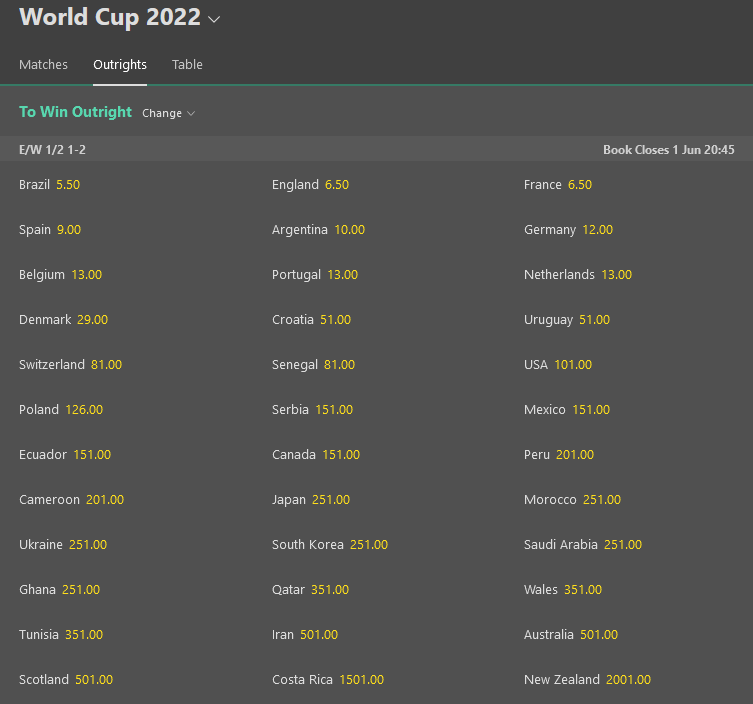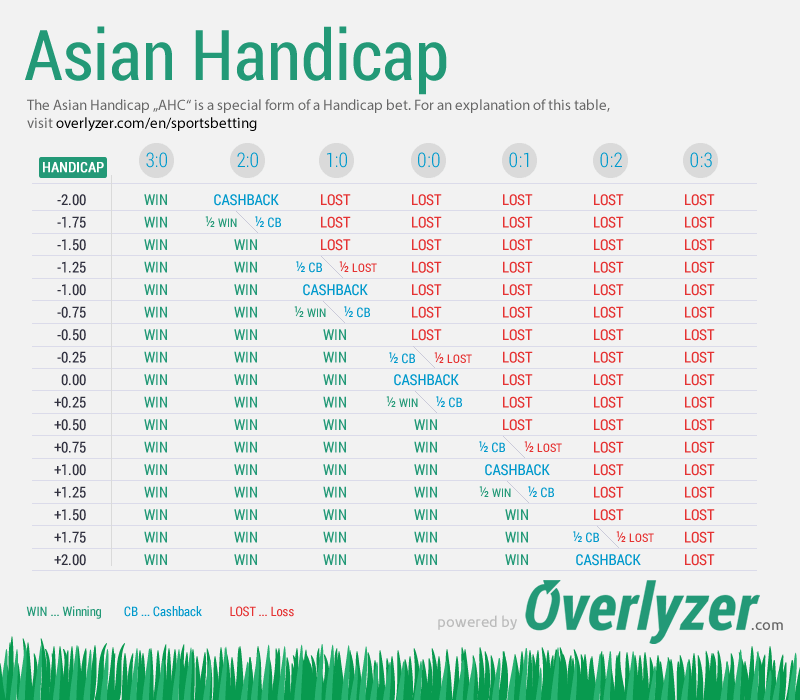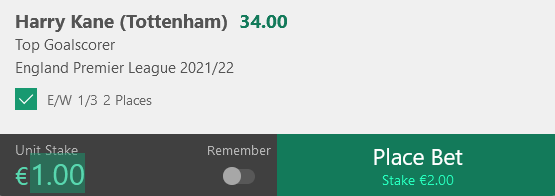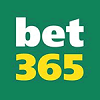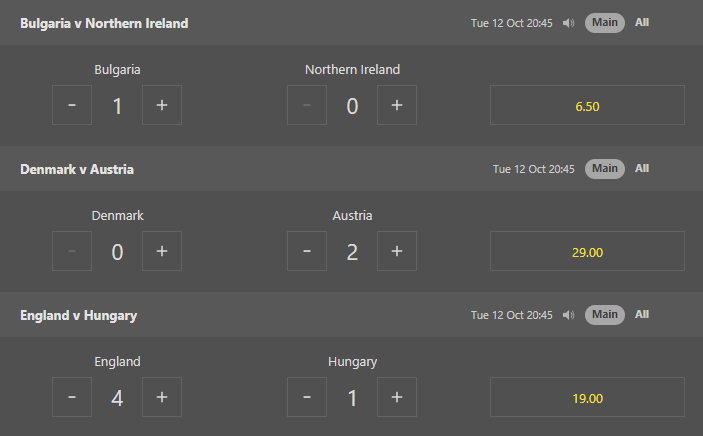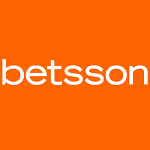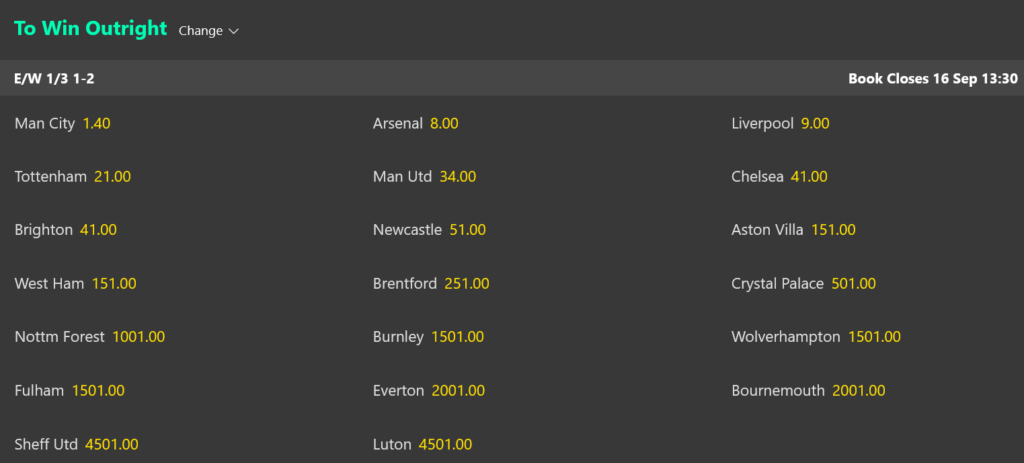The Ultimate Betting Glossary: Your Definitive Guide to Sports Betting Terms
Navigating the world of sports betting can be a daunting task, especially when faced with a sea of unfamiliar terms and jargon. Whether you’re a seasoned pro or a betting novice, having a comprehensive understanding of betting terms is crucial to making informed decisions and enjoying your betting experience to the fullest.
That’s why we’ve created this Ultimate Betting Glossary, your definitive guide to betting terms. This comprehensive resource includes clear and detailed definitions of key betting terms, along with real-world examples and key insights to help you understand each concept thoroughly. From common terms like ‘accumulator’ and ‘odds’ to more specialized terminology like ‘Yankee’ and ‘vigorish’, we’ve got you covered.
So, whether you’re placing a casual bet on your favorite team or looking to develop a more sophisticated betting strategy, this glossary is an essential resource. Bookmark it and refer back whenever you come across a term, you’re unfamiliar with. Happy betting!
Top Bookmaker for Sports Wagering
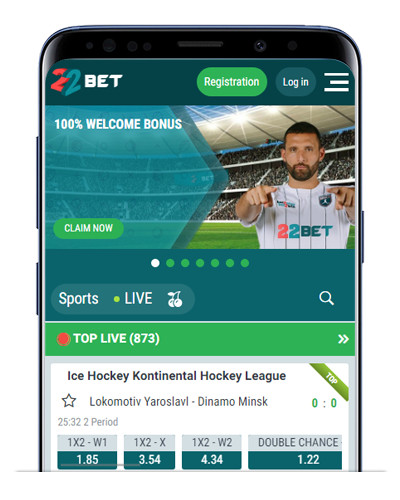
22Bet offers sports betting with high stakes and win limits. In addition, the betting company has a wide range of bets available. Customers who play with higher stakes and do not want to compromise on the betting selection will find 22Bet a great choice!
22bet Review Sign up with 22BET and get 122 €/$ BonusBetting Terms Overview
A
Accumulator
An Accumulator, colloquially known as ‘Acca’ in the UK, is a bet that links four or more individual wagers for a potentially high payout. The catch is all selections must win.
Let’s say a bettor places an accumulator bet on four soccer matches with the following odds: Liverpool at 1.5, Barcelona at 1.7, Juventus at 2.0, and Paris Saint-Germain at 1.8. If all four teams win, the total odds would be a product of the individual odds (1.5 x 1.7 x 2.0 x 1.8 = 9.18). A $10 bet could result in a $91.80 return.
This multiplier effect on odds makes accumulators a high-reward, high-risk betting strategy. It’s worth noting that when there are just two or three selections, such bets are typically referred to as “Doubles” and “Trebles”, respectively.
Action
In the vibrant milieu of sports betting, “Action” signifies any kind of bet, regardless of its size or type. It’s a general term used to describe having a stake on the outcome of an event.
For instance, if a soccer aficionado places a bet on Manchester United to win their next match, they have “action” on that game. Interestingly, “action” also refers to the desire for betting activity by a gambler. Someone might say, “I need some action on tonight’s Champions League matches,” showcasing their intent to place a bet.
Added Game
An “Added Game” is not part of the regular betting menu but is included later, often due to heightened interest from bettors or the sudden significance of the match.
For instance, if a lower-tier soccer team embarks on a fairy-tale run in the FA Cup and finds itself in a high-profile matchup, bookmakers might add this game to their offerings due to unexpected public interest.
Alternate Lines
In sports betting, especially soccer, “Alternate Lines” provide bettors with different options other than the standard betting lines. Essentially, these are hypothetical scenarios bookmakers offer, allowing more flexibility in the odds and point spreads.

For instance, if FC Barcelona is favored to win by 1.5 goals, an alternate line might provide odds for them winning by 2.5 goals, offering better payouts but at a heightened risk.
Ante-Post (or Long-Term Betting)
Ante-Post betting, also known as futures betting or long-term betting, refers to bets placed well in advance of the event. These bets often come with higher risks, as many variables can change over time, but they also offer more attractive odds.
A classic example in soccer would be betting on a team to win the World Cup before the tournament even begins or even before the qualifiers end. Using this strategy, bettors lock in odds, potentially reaping significant returns if their foresight proves accurate. However, the trade-off is the uncertainty that comes with such early bets.
Arbitrage
Arbitrage, in the nuanced world of betting, is a strategy that involves placing simultaneous bets on all possible outcomes of an event to ensure a profit regardless of the result. This approach becomes viable when different bookmakers offer varying odds.
For instance, one bookmaker might offer odds of 2.0 for Team A to win a soccer match, while another offers odds of 2.2 for Team B not to lose (meaning either a win for Team B or a draw). By strategically distributing the wagered amount across these odds, a bettor can guarantee a profit.
However, it requires a keen eye, swift decision-making, and often substantial stakes. It’s a way to exploit market inconsistencies, but bettors must be aware of potential pitfalls, such as bookmakers canceling bets or limiting stakes.
Asian Handicap
Asian Handicap is a popular soccer betting style that levels the playing field between two mismatched teams. Instead of just win, lose, or draw, Asian Handicap adds a goal handicap, positive or negative, to the teams.
For example, if Barcelona is favored to beat Getafe, they might start with a handicap of -1.5 goals. This means they need to win by 2 goals or more for bets on them to pay out. Asian Handicap eliminates the possibility of a draw result in betting, simplifying outcomes to either a win or a loss.
ATS (Against the Spread)
“Against The Spread” (ATS) is a widely-recognized betting term, especially in American sports like the NFL. When you bet ATS, you’re not merely wagering on which team will win, but by how much they’ll win or lose by.
For instance, if the New England Patriots are -7.5 ATS against the Miami Dolphins, they need to win by 8 points or more to cover the spread. Conversely, bets on the Dolphins would win if they either clinch the match or lose by 7 points or fewer.
ATS betting introduces an additional layer of strategy, as bettors must consider not just the victor but the margin of victory or defeat.

✚ Trusted Bookmaker with highest payout rates ✚ Deposits and Payouts with numerous different payment methods including crypto currencies ✚ very high stake limits for Sports Betting and Casino ✚ huge betting offers with very attraktive odds ✚ solid Live Betting options and live customer support
1Bet Review Sign up with 1Bet and get 100 € BonusB
| Backed in | Bankroll | Beard | Beef | Bet Slip |
| Betting Exchange | Betting Line | Betting Ring | Betting Trends | Bogey |
| Book | Bookmaker | Bottle | Buck | Burlington Bertie |
| Buying Points |
Backed In
When odds for a particular outcome or team get shorter due to a lot of betting activity, it’s said that the selection has been “backed in.”
In soccer, if a sudden influx of bets is placed on a team to win their upcoming match, their odds might drop from 4.0 to 3.5. This could be because of various factors like team news, insider information, or simply a trend in the betting community. A “backed in” team indicates a popular choice among bettors.
Bankroll
Your ‘bankroll’ is the total amount of money you’ve set aside specifically for betting. For bettors who take their wagering seriously, managing the bankroll is crucial to ensure long-term success.

A common strategy is to never wager more than a small percentage of your bankroll on a single bet. For example, a soccer fan might have a bankroll of $1,000 for the Premier League season, and they decide never to place more than $50 (or 5% of their bankroll) on a single match to mitigate risk.
Beard
A ‘beard’ is someone who places a bet on behalf of another person, aiming to conceal the identity of the real bettor. This is often done to avoid attention, especially if the actual bettor is restricted or banned from placing wagers.
Imagine a well-known soccer coach wanting to bet on a rival team’s match without attracting attention; they might use a beard to place that bet for them.
Beef
In the betting realm, a ‘beef’ is a disagreement or dispute between a bettor and a bookmaker, typically about the outcome of a wager or the payout amount.
Bet Slip
A bet slip is a digital or paper ticket that displays all of the selections and bets a bettor has made. It typically includes the names of the selections, the odds for each selection, the type of bet, and the potential payout.
For example, a soccer fan might have a bet slip that includes a moneyline bet on Manchester United at 2.0 odds, a total goals over/under bet, and a half-time/full-time bet. Once the bettor has confirmed the bets and the stake, the bet slip will indicate the potential payout, and the bet is placed.
It is important to review the bet slip carefully before finalizing the bet as it’s the bettor’s responsibility to ensure that all details are correct.
Betting Exchange
A betting exchange is a marketplace where bettors can place bets against each other rather than against a bookmaker. This platform allows bettors to act as both the punter (betting on outcomes) and the bookmaker (offering odds and accepting bets).
For example, in a soccer match between Arsenal and Chelsea, one bettor might offer odds of 2.5 on Arsenal to win, while another bettor might accept those odds and bet on Arsenal. The betting exchange facilitates this transaction and usually charges a commission on winnings.
This platform promotes competitive odds and offers the opportunity to bet against outcomes.
Betting Line
The betting line is the set of odds offered by a bookmaker for a particular event.
For example, the betting line for a soccer match between Real Madrid and Barcelona might include odds for various markets such as match winner, total goals, both teams to score, etc.
The line is subject to change based on various factors like team news, weather conditions, and market demand. It’s crucial for bettors to monitor the line movements to make informed decisions and secure the best possible odds.
Betting Ring
The betting ring is a designated area at a racecourse where bookmakers are allowed to set up stands and take bets from the public. It is a physical space, usually located near the racetrack, where bettors can engage with different bookmakers, compare odds, and place bets.

Although this term is most associated with horse racing, it can also refer to similar areas at other sporting events.
However, with the rise of online betting, the significance of the betting ring has diminished over the years.
Betting Trends
Betting trends are patterns or movements in betting activity. These trends could involve a lot of bettors placing their money on a particular outcome or a significant amount of money being bet on one side.
For example, if a large number of bettors are backing Liverpool to win against Manchester City, this trend might cause the bookmakers to adjust the odds to balance their liability.
It’s important to differentiate between betting trends, which are based on the betting activity, and performance trends, which are based on the past performances of the teams or players involved.
Bogey
In betting terms, a ‘bogey’ refers to a team or player that is generally considered to be inferior or less likely to win.
For example, in a soccer match between a top-ranking team and a lower-ranking team, the lower-ranking team would be considered the bogey team. These teams are also called underdogs or outsiders.
Book
In the context of betting, the ‘book’ refers to the record of all bets made on a particular event or series of events. A bookmaker or sportsbook will manage the book, keeping a record of the odds offered, the bets placed, and the potential payouts.

The goal for the bookmaker is to create a balanced book, where the total amount of bets on each side of an event is roughly equal, minimizing their risk and guaranteeing a profit regardless of the outcome.
Bookmaker (or Bookie)
A bookmaker, or bookie, is an individual or organization that accepts bets on sports and other events at agreed-upon odds. They play a crucial role in the betting industry, facilitating bets between parties and determining the odds for different outcomes.
For example, a bookie might offer odds of 3.0 on Manchester United to win a soccer match. If a bettor places a $10 bet on Manchester United, they stand to win $30 if Manchester United wins the match. Bookies make money by offering odds that slightly favor them, ensuring that they make a profit over time.
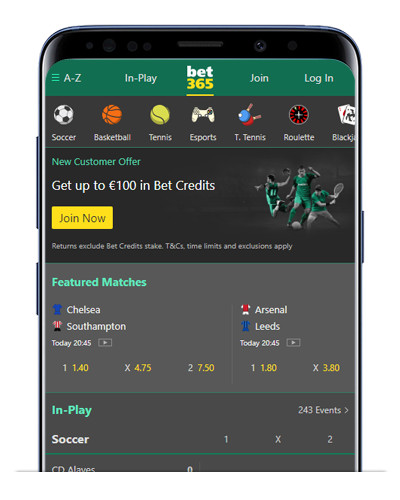
The most established name in world wide sports betting offers a huge range of betting options for new and experienced bettors. Bet365 is well known for great odds on sporting events from around the globe.
Bet365 Review Sign up with Bet365 and get 100 €/$/£ BonusThis profit, known as the vig or vigorish, is essentially a commission that the bookmaker charges for their services and is used to fund their operations. It is important for bettors to shop around for the best odds as different bookmakers might offer slightly different odds on the same event. Finding the right bookmaker is crucial for your betting success.
➜ Check out our extensive bookmaker reviews to find the best one for you.
Bottle
‘Bottle’ is slang for odds of 2/1 in UK betting. Although not commonly used in the world of online betting, it is a term that one might encounter in the more traditional betting shops in the UK.

For example, if a bookmaker offers a bottle on a horse, the odds are 2/1. If a bettor places a $10 bet at bottle odds, they would receive $30 ($20 profit plus the $10 stake) if the horse wins.
Buck
A ‘buck’ is a slang term for $100. It is commonly used in the United States and can apply to various forms of gambling, including sports betting.
For example, a bettor might say they placed ‘two bucks’ on a soccer match, indicating a $200 bet.
Burlington Bertie
‘Burlington Bertie’ is traditional UK betting slang for odds of 100/30. Similar to ‘bottle,’ it is a term that is not commonly used in online betting but might be encountered in traditional betting shops.
If a bettor places a $10 bet at Burlington Bertie odds, they would receive $43.33 ($33.33 profit plus the $10 stake) if their selection wins.
Buying Points
Buying points refers to the practice of paying an additional fee to adjust the odds or point spread of a bet in the bettor’s favor.
For example, in a soccer match where a team is favored by 1.5 goals, a bettor might choose to ‘buy points’ to adjust the line to 1.0 goals, increasing their chances of winning the bet.
However, this also means that the potential payout will be lower as the odds are adjusted accordingly.
Live Betting Tool for successful wagering – this is how Overlyzer works
C
| Canadian | Carpet | Casino Advantage | Chalk | Chalk Eater |
| Churn | Circle Game | Closing Line | Combination Bet | Consensus Pick |
| Correct Score | Cover |
Canadian
A Canadian Bet, also known as a Super Yankee, is a combination bet that involves 26 bets on five different selections. It includes 10 doubles, 10 trebles, 5 four-fold accumulators, and 1 five-fold accumulator.
For example, a bettor might choose five soccer teams to bet on and place a Canadian bet. This would create 26 separate bets. If at least two of the selections win, the bettor will get a return.
The more selections that win, the higher the return will be. It is a way of spreading the risk and increasing the potential for a return.
Carpet
In betting slang, ‘carpet’ refers to odds of 3/1. It is a traditional term used in UK betting circles and is less common in the modern online betting world. If a bettor places a $10 bet at carpet odds, they would receive $40 ($30 profit plus the $10 stake) if their selection wins.
Casino Advantage
The casino advantage, also known as the house edge, is the built-in advantage that casinos have on most of the games offered. It is expressed as a percentage and represents the average profit the casino expects to make from each bet over the long term.
For example, if a casino game has a house edge of 5%, the casino expects to make a $5 profit on average for every $100 bet.
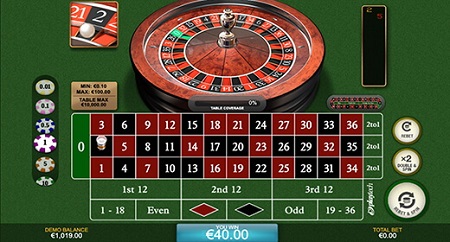
➜ Casinos with Crypto Currencies – check our Crypto Casino Reviews
Chalk
‘Chalk’ is a slang term for the favorite, or the team or player that is expected to win. It is commonly used in the United States, especially in relation to American sports.
For example, if the New England Patriots are playing against a lower-ranked team, the Patriots would be considered the chalk.
Chalk Eater
A ‘chalk eater’ is a bettor who predominantly bets on favorites. It is often used in a derogatory manner to describe someone who always bets on the most likely outcome and avoids underdogs or risky bets.
Churn
Churn refers to the process of reinvesting one’s winnings into new bets.
For example, if a bettor wins $100 on a soccer match and then uses that $100 to place a new bet, they are churning their winnings.
Churning can be a risky strategy as it can lead to rapid losses if the bettor experiences a losing streak.
Circle Game
A circle game is an event where the betting limits are lowered, often due to uncertainties about key factors that could affect the outcome. This is common in sports like American football, where weather conditions or injuries to key players can significantly impact the game.
For example, if it is unclear whether the starting quarterback of an NFL team will participate in a match due to an injury, the game might be circled, and bettors would not be able to place bets above a certain amount.
Closing Line
The closing line is the final set of odds offered by bookmakers before an event starts. It is often considered the most accurate reflection of the true odds of an event as it takes into account all the information available up to that point.

For example, if the odds on a soccer match change throughout the week and settle at 2.0 for Team A to win just before the match starts, 2.0 is the closing line.
Combination Bet
A combination bet is a nuanced betting strategy that merges multiple selections into one wager, differentiating itself from an accumulator bet as it doesn’t necessitate all selections to triumph for a return.
Picture this: a punter selects four football matches and places a combination bet on every conceivable double – totalling six. A return is secured if at least two selections prevail. The winnings increment with each successful selection.
Critically, this diverges from an accumulator bet, where all selections must be victorious.
Consensus Pick
The consensus pick is the most popular selection among bettors or pundits, serving as a barometer for public sentiment. Suppose 70% of wagers are on Team A in a football match; Team A becomes the consensus pick.
Correct Score
The correct score bet is a wager predicting the precise final score of a match, a prevalent option in football due to its lucrative odds. A punter might wager on Team A clinching a 2-1 victory. Any deviation from this scoreline results in a lost bet.
Cover
To ‘cover’ means that a team has beaten the point spread set by bookmakers. It is a term commonly used in American sports betting. For example, if an NBA team is favored to win by 5 points and they win by 7 points, they have covered the spread.
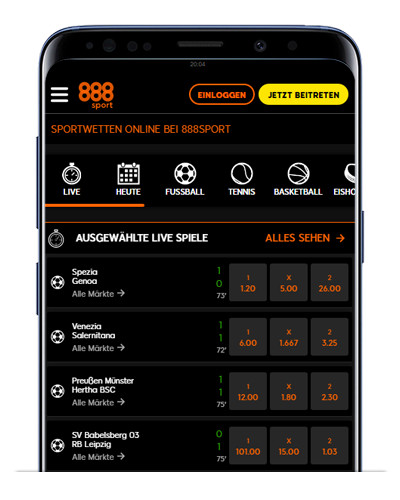
A reliable online betting platform provided by dedicated in-house built software, and a consistently attractive offer of popular and interesting sports make Betsson a favourite sports betting provider for many players worldwide.
Betsson Review Sign up with Betsson and get 10 €/$/£ Free BetD
Dead Heat
A dead heat is a situation where two or more participants finish an event in a tie. It is common in sports like horse racing and athletics. In betting, the stakes are usually divided by the number of winners in a dead heat.

For example, if two horses finish a race in a tie and a bettor has placed a $10 bet on one of them to win, the bettor’s stake would be halved, and the payout would be calculated based on a $5 bet.
Dime
In betting parlance, a ‘Dime’ is slang for a bet of $1000. It’s a term often used among professional gamblers and high rollers. For example, if someone says they placed ‘three dimes’ on a game, they are indicating that they bet $3000.
Dollar
A ‘Dollar’ in betting simply refers to $100. It’s a common term used by bettors to describe the amount they are wagering without stating the actual amount. For example, if a bettor says they are placing ‘five dollars’ on a game, it means they are wagering $500.
Double Action
A Double Action bet is a type of conditional bet involving two events starting at different times of the day. The first bet must be successful for the second bet to be in action.
For example, if a bettor places a double action bet of $100 on Manchester United to beat Chelsea in an earlier match, and then another bet on Liverpool to beat Arsenal in a later match, the Liverpool-Arsenal bet is only valid if Manchester United wins.
If Manchester United loses, the bet is finished, and the bettor loses the $100. If Manchester United wins, the bettor can then decide how much of their winnings to wager on the Liverpool-Arsenal match.
Double Bet
A Double Bet involves placing a single bet on two different events, with the initial stake being placed on the first event, and then, if successful, the returns are rolled into the subsequent event.

For example, if a bettor places a $100 double bet on Barcelona to win their match against Real Madrid, and then another bet on Liverpool to win against Manchester United, the initial $100 is placed on the Barcelona-Real Madrid match.
If Barcelona wins, the returns from that bet are then placed on the Liverpool-Manchester United match. Both selections must be successful for the bet to win.
Double Result
A Double Result bet involves predicting the result of a game at both half-time and full-time. For example, a bettor might place a bet on a soccer match predicting that Team A will be leading at half-time, and then Team B will win at full-time.
Draw no Bet
Draw No Bet is a type of bet where the stake is refunded if the match ends in a draw.
For example, if a bettor places a $100 Draw No Bet wager on Team A, they will win the bet if Team A wins the match, lose the bet if Team B wins the match, and have their $100 stake refunded if the match ends in a draw.
Drift
In betting, ‘drift’ refers to the odds of a selection increasing or getting larger as the event approaches, which usually happens when there is less money being placed on that selection, or if there is a change in circumstances that makes that outcome less likely.
For example, if a soccer team’s star player gets injured before a match, the odds on that team to win might drift from 2.0 to 2.3 This means the bookmakers believe that team is now less likely to win due to the injury.
Drift can occur in any betting market, not just in sports betting.
Duck
Duck is slang for a $100 bet. For example, if a bettor says they placed ‘three ducks’ on a game, they are indicating that they bet $300.
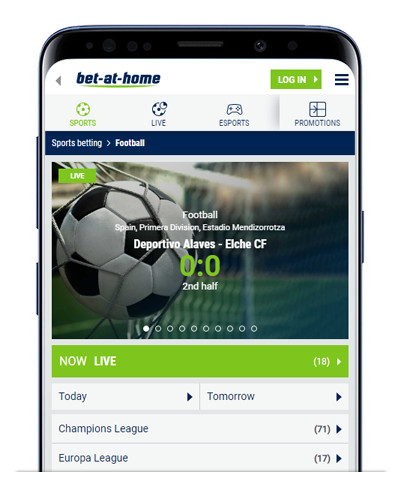
Bet-at-home is a household name for online sports betting in many European countries with more than 5 million registered customers. Punters appreciate the secure betting platform and the wide range of sports with a huge number of different betting markets available.
Bet-at-home Review Join Bet-at-home and claim your €100 Bonus nowE
| Early Cash Out | Each Way | Each Way Double | Earn | Edge |
| Edge Betting | Edge Count | European Handicap | Even Money | Evens |
| Exacta | Excluded | Exotic Bet | Exposure | Extension |
Early Cash Out
Early Cash Out is an option offered by some bookmakers that allows bettors to settle their bet and receive a payout before the event has concluded.
For example, if a bettor places a $100 bet on a soccer team to win, and that team is leading 2-0 at half-time, the bookmaker might offer an early cash out of $150.
The bettor can choose to take the $150 and end the bet, or let the bet run until the end of the match.
Each Way
An Each Way bet consists of two separate bets: one bet on a selection to win, and another bet on the same selection to place (finish in one of the top positions).
For example, if a bettor places a $10 each way bet on a horse to win a race, they are actually placing a $10 bet on the horse to win, and a $10 bet on the horse to finish in one of the top positions (usually the top three or four, depending on the bookmaker’s terms).
Each Way Double
An Each-Way Double is a wager on two selections in different events, with the bet being split into two parts: a ‘win’ part and a ‘place’ part.
For example, if a bettor places a $10 each-way double on Horse A to win the first race and Horse B to win the second race, the bet is split into four separate bets: $10 on Horse A to win, $10 on Horse A to place, $10 on Horse B to win, and $10 on Horse B to place.
Earn
Earn, in betting terminology, refers to the profit made by a bettor from a successful bet. For example, if a bettor places a $100 bet at odds of 2.0 and wins, they would earn $100 profit.
Edge
Edge refers to the advantage a bettor has over the bookmaker or other bettors.
For example, a bettor who has insider knowledge about a team’s injuries or tactics might have an edge over other bettors who do not have that information.

You can increase your edge with betting tools like Overlyzer.
Make informed decisions with real-time game performance data and stats.
Edge Betting
Edge Betting is a betting strategy where a bettor only places bets when they believe they have an edge over the bookmaker. This often involves using statistical analysis, betting tools like Overlyzer, insider knowledge, or other information to gain an advantage.
Edge Count
Edge Count refers to the number of bets a bettor has placed where they believe they have an edge over the bookmaker or other bettors. For example, a bettor who has placed 100 bets and believes they had an edge on 60 of them has an edge count of 60.
European Handicap
A European Handicap is a type of bet used in soccer betting that involves giving one team a virtual advantage or disadvantage before the match starts.
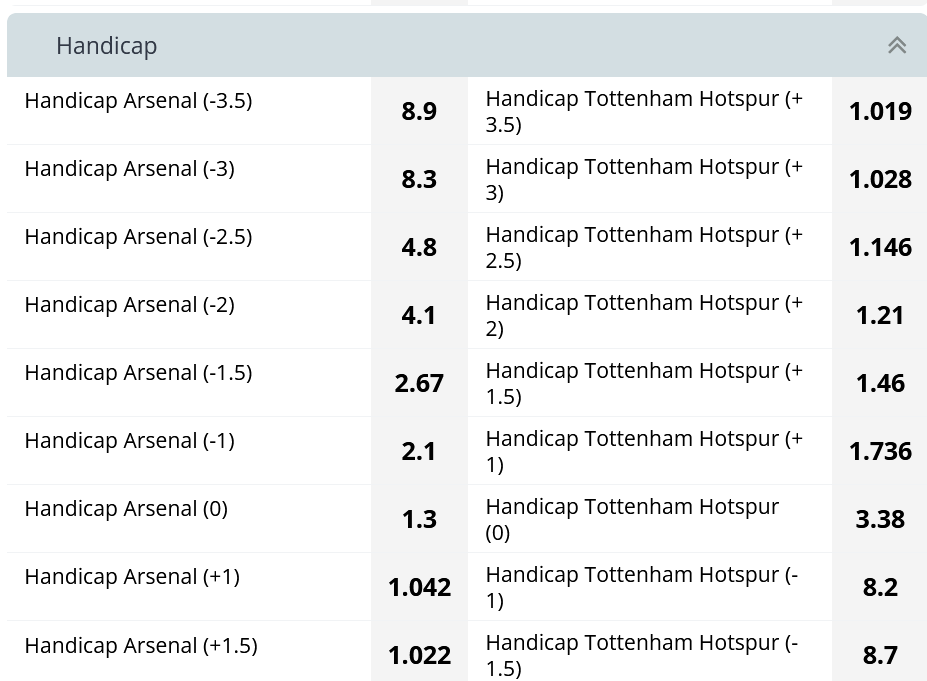
For example, if Team A is a heavy favorite to win a match against Team B, a bookmaker might offer a European Handicap of -1 goal for Team A. This means that Team A starts the match with a virtual score of -1, so they need to win by two or more goals for a bet on them to be successful.
Even Money
Even Money refers to a bet where the potential winnings are the same as the amount staked. For example, if a bettor places a $100 bet at even money odds, they will win $100 if their bet is successful.
Evens (or Even Money)
Evens is another term for Even Money. A bet placed at evens will double your money if it wins, excluding your original stake. For example, a $100 bet at evens will return $200 if successful – $100 winnings plus the original $100 stake.
Exacta
An Exacta is a type of bet used in horse racing where the bettor must pick the first two horses to finish the race in the correct order.
For example, if a bettor places an Exacta bet on Horse A to finish first and Horse B to finish second, they will only win the bet if Horse A finishes first and Horse B finishes second.
Excluded
In betting, ‘excluded’ refers to a bet or a selection that is not included in a bettor’s overall wager.

For example, if a bettor places a bet on a soccer match but the bookmaker excludes extra time and penalties from the bet, only the result after 90 minutes will count towards the bet.
Exotic Bet
An Exotic Bet is a type of wager made on horse races that is more complicated than a simple win, place, or show bet. Exotic bets often involve making multiple selections in a single event or across multiple events.
Examples of exotic bets include Exacta, Trifecta, and Quinella bets in horse racing.
Exposure
Exposure refers to the maximum amount of money a bookmaker stands to lose on a particular market or event.
For example, if a bookmaker has accepted a large number of bets on one team to win a soccer match, their exposure on that team will be high.
Extension
In betting, ‘extension’ refers to the odds of a selection being increased. For example, if the odds for a team to win a soccer match are extended from 2.0 to 2.5, the bookmaker is offering more attractive odds to entice more bets on that team.
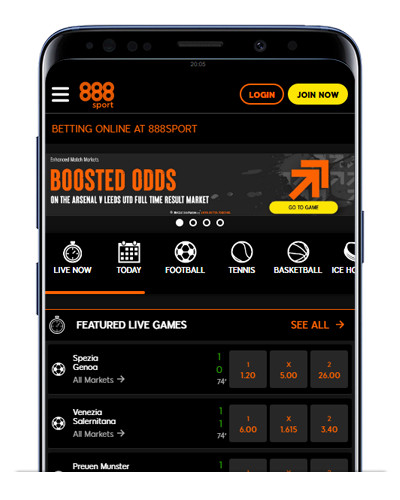
888sport has been providing online sports betting since 2008 and is one of the fastest-growing bookmakers worldwide. With numerous popular promotions, an excellent reputation for reliability and betting services on a stable platform 888 is very popular with punters especially from the UK.
888Sport Review Sign up with 888 and claim your €/£30 Free BetF
| Fast Track | Field | Field Bet | Final Line | First Half Bet |
| First Past the Post | Flag | Fold | Forecast | Fractional Odds |
| Free Bet | Full Cover Bet | Full Time Result | Futures |
Fast Track
A Fast Track is a racing surface that is firm and dry, leading to faster running times for the horses.
In betting, it is important to consider the track condition as some horses perform better on fast tracks, while others perform better on softer, slower surfaces.
Field
In betting, the ‘field’ refers to all the possible selections or outcomes in a particular market. For example, in a soccer match, the field for the ‘match winner’ market includes all three possible outcomes: Team A to win, Team B to win, and a draw.
Field Bet
A Field Bet is a type of bet where the bettor selects one or more horses to finish in any of the top positions in a race.

For example, if a bettor places a field bet on Horse A, they will win the bet if Horse A finishes in any of the top three positions.
Final Line
The Final Line is the betting odds that are available just before the start of an event. These odds are considered final and will not change, regardless of any last-minute occurrences.
For example, if the final line for a soccer match is 2.0 for Team A to win, those are the odds a bettor will get if they place a bet just before the match starts.
First Half Bet
A First Half Bet is a wager placed only on the outcome of the first half of a sports event, such as a soccer match.
For example, a bettor might place a first half bet on Team A to lead at halftime. The result of the match at full-time is irrelevant to this wager; only the score at halftime matters.
First Past the Post
First Past the Post’ is a term used in horse racing to describe the first horse to cross the finish line.
However, in betting, it refers to a rule where the bookmaker will pay out on the horse that crosses the finish line first, regardless of any subsequent disqualifications or objections.
Flag
A Flag bet is a type of system bet that involves placing 23 bets on four different selections in six doubles, four trebles, a four-fold accumulator, and six up-and-down bets (which are single stakes about pairs).
This is a complex betting strategy that aims to provide a good balance between risk and reward.
Fold
In betting, ‘fold’ refers to the number of selections included in an accumulator bet.

For example, a four-fold accumulator bet includes four selections, all of which must win for the bet to be successful.
Forecast
A Forecast is a type of bet where the bettor must correctly predict the finishing order of two or more selections in an event.
For example, in a horse race, a bettor might place a forecast bet on Horse A to finish first and Horse B to finish second.
Fractional Odds
Fractional Odds are a way of expressing the probability of a particular outcome in a betting event. The numerator (the first number) represents how much you will win from a bet of the size of the denominator (the second number).
For example, odds of 5/1 (read “five to one”) mean you will win $5 for every $1 staked.
Free Bet
A Free Bet is a bet placed using a free bet token provided by a bookmaker. Often given as a promotion or a bonus, the bettor does not risk their own money but can still win real money.
For example, a bookmaker might offer a $10 free bet as a welcome bonus for new customers.
Full Cover Bet
A Full Cover Bet is a type of bet that involves placing all possible multiple bets on a set number of selections. This includes singles, doubles, trebles, and accumulators.
For example, a ‘Patent’ is a full cover bet on three selections, comprising seven bets: three singles, three doubles, and a treble.
Full Time Result
A Full-Time Result bet is a type of wager placed on the final outcome of a sports event, such as a soccer match.
Bettors can choose from three options: Home win, Away win, or Draw. For example, if a bettor places a full-time result bet on Team A to win, they will only win the bet if Team A wins the match at full-time.
Futures
Futures bets, also known as long-term or outright bets, are wagers placed on events that will occur in the future, often at the end of a season or tournament.
For example, a bettor might place a futures bet on a team to win the World Cup before the tournament starts. The odds for futures bets are often higher because there are more variables and a higher degree of uncertainty.
This type of betting requires patience and a good understanding of the sport or event in question.
G
Gamcare
Gamcare is a UK-based organization that provides support and advice to people affected by problem gambling. They offer a range of services, including a helpline, online chat, and face-to-face counseling.

It is essential for bettors to be aware of organizations like Gamcare and to seek help if they feel they have a gambling problem.
Goal Line
Goal Line is a type of bet where a bettor predicts the number of goals that will be scored in a soccer match. It is similar to the Over/Under bet, but specifically for goals.
For example, if the goal line is 2.5, a bettor can wager on there being more than 2.5 goals (three or more) or less than 2.5 goals (two or fewer) in the match.
Going Down
“Going Down” is a term used in horse racing to describe the moment when the horses leave the paddock and head to the starting line.
In betting, odds can often change rapidly in the period leading up to the “going down” as it is the last chance for bettors to assess the condition of the horses and the track.
Goliath
A Goliath is a type of multiple bet that involves making 247 bets on eight different selections in eight single bets, 28 doubles, 56 trebles, 70 four-folds, 56 five-folds, 28 six-folds, eight seven-folds, and one eight-fold accumulator.

It is a high-risk, high-reward bet that requires a small stake on each bet but can result in a substantial payout if several or all of the selections are successful.
Grand
In betting terms, ‘grand’ is slang for one thousand units of currency, whether it be dollars, pounds, or euros.
For example, if a bettor says they have placed a ‘two grand’ bet, they have wagered $2,000 or £2,000 or €2,000.
Grand Salami
The Grand Salami is a type of bet popular in ice hockey, where bettors wager on the total number of goals scored in all games played on a particular day.
The bookmaker will set a line for the total number of goals, and bettors can wager on whether the actual total will be over or under that line.
Green Book
A Green Book is a term used to describe a bookmaker’s ledger in which all bets and transactions are recorded.

It is essential for bookmakers to keep accurate records of all bets placed and the outcome of those bets to ensure they can settle bets correctly and manage their finances effectively.
Gross Win
The Gross Win is the total amount won by a bettor before the deduction of the stake.
For example, if a bettor places a $100 bet at odds of 3.0 and wins, their gross win would be $300.
H
Handicap
A Handicap bet is a type of wager where one team or player is given a theoretical advantage or disadvantage to even the playing field.
In soccer, for example, if Team A is much stronger than Team B, a bookmaker might offer a handicap of -2 goals for Team A, meaning they would need to win by three goals or more for a bet on them to be successful.
There are two main types of handicaps, European and Asian.
- European Handicap is a straight-forward handicap where teams are given a + or – handicap, which can include drawing as a possibility.
- Asian Handicap, on the other hand, involves handicaps with .25,.5, .75 etc, thereby eliminating the possibility of a draw.
Handicap Race
A Handicap Race is a type of horse race where the horses carry different weights, assigned by a handicapper, to even the chances of all horses participating.

The better a horse’s form, the more weight it will carry. It is a way to make the race more competitive and interesting for bettors.
Handle
The Handle is the total amount of money wagered on a particular game, event, or market. It includes all bets placed, both winning and losing.
Bookmakers use the handle to calculate their hold, which is the amount of money they keep after paying out all winning bets.
Hedging

Hedging is the strategy of placing bets on different outcomes or markets to reduce risk or guarantee a profit. It involves placing a new bet that is opposite to an existing bet to create a situation where there is a win no matter the outcome.
It is a common strategy used by experienced bettors
Heinz
A Heinz bet is a type of multiple bet that consists of 57 bets on six selections in different events.
The bet includes 15 doubles, 20 trebles, 15 four-folds, 6 five-folds, and a six-fold accumulator. Only two selections need to win to get a return.
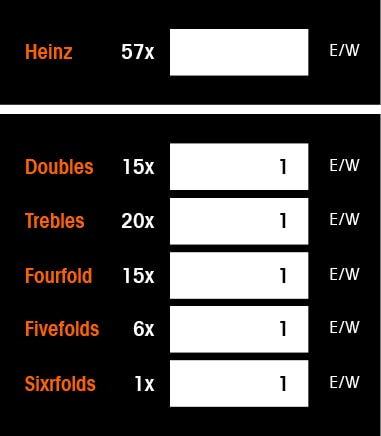
It is named ‘Heinz’ because of the 57 varieties in the bet, which is a reference to the ’57 varieties’ slogan of the H.J. Heinz Company.
High Roller
A high roller is a term used to describe a gambler who consistently wagers large amounts of money.
Casinos and bookmakers often offer special perks and privileges to high rollers, such as bonuses, VIP treatment, and complimentary items, to encourage them to continue betting.
Hold
In betting, the hold is the percentage of money the bookmaker retains after all bets have been settled.

It is calculated by subtracting the total amount paid out on winning bets from the total amount wagered.
Home Field Advantage
Home Field Advantage refers to the perceived benefit a team gains when playing in their home stadium or venue.
Factors such as familiarity with the playing surface, support from the home crowd, and not having to travel can all contribute to a team’s home field advantage.
Hook
A hook is a half-point in the betting spread. For example, if a team is favored by 3.5 points, the hook is the .5 point.
It is often added by bookmakers to eliminate the possibility of a push, which is when no one wins or loses because the final score lands exactly on the spread.
Hoops
Hoops is slang for basketball. When someone refers to ‘hoops betting,’ they are talking about placing bets on basketball games.
Hot Tip
A hot tip is a piece of inside information that a bettor receives about the outcome of a sporting event.
It is often regarded with skepticism as the source of the information may not be reliable, and there is no way to verify its accuracy.
I
IBAS
The Independent Betting Adjudication Service (IBAS) is an Alternative Dispute Resolution (ADR) service, approved by the United Kingdom Gambling Commission to provide informed and impartial adjudications on disputes that arise between licensed gambling operators and their customers.
Implied Probability
Implied Probability is the conversion of betting odds into a percentage.
It reflects the likelihood of a particular outcome, according to the odds set by the bookmakers. For example, if the odds are 2.0, the implied probability is 50% (1 / 2.0 = 0.50).
In-Game Wagering/In-Play Betting/In-Running Betting
These are all different terms for the same type of betting, which involves placing bets on a sporting event after it has started.
This type of betting is also known as live betting or in-game wagering. The odds for different outcomes change in real-time based on the progress of the game.
For example, the odds for a team to win might get shorter (decrease) if they score a goal, or get longer (increase) if one of their key players gets injured.

This type of betting offers more dynamic and potentially profitable opportunities compared to pre-game betting, but also requires quick decision-making and a good understanding of the game.
Make data-driven decisions in real-time with Overlyzer.
J
Jackpot
The jackpot is the largest prize available in a gambling game or lottery. It often accumulates over time until it is won by a lucky player.
Joint Favorite
Joint Favorite refers to when there are two or more selections in a betting market that have the same shortest odds.
It indicates that the bookmakers consider these selections to have an equal chance of winning.
Joint Top Weight
In horse racing, joint top weight refers to when two or more horses are assigned the same highest weight to carry in a handicap race.
Juice
Juice, also known as vig or vigorish, is the commission that bookmakers take on bets. It is usually built into the odds, meaning bettors are effectively paying it whenever they place a bet.
For example, if the odds on a coin toss are 1.90 for both heads and tails, the juice is the difference between the true odds of 2.0 and the odds offered by the bookmaker.
K
| Kelly Criterion | Key Numbers | Key Player |
Kelly Criterion
The Kelly Criterion is a mathematical formula that helps bettors determine the optimal bet size based on the odds and their perceived probability of success. It is designed to maximize the expected logarithm of wealth (i.e., expected geometric growth), which is more appropriate than expected profit or expected return, as it accounts for the size of your bets and the risk involved. The formula is:
Kelly % = (BP – Q) / B
Where:
B is the odds received on the wager, expressed as a multiple of the wager (so 2/1 becomes 2),
P is the probability of success, expressed as a decimal (so 50% becomes 0.50),
Q is the probability of failure, which is 1 – P.
For example, if a bettor believes a team has a 60% chance of winning (P=0.60), and the odds offered are 2/1 (B=2), then the Kelly Criterion suggests a wager of:
Kelly % = ((2*0.60) – 0.40) / 2 = 0.40 or 40% of the bankroll
Key Numbers
Key numbers refer to the most common margins of victory or final totals in sports. For example, in American football, games often end with a margin of victory of 3 or 7 points (because of the scoring system), making these key numbers. Bookmakers often adjust the odds or the point spread around these key numbers to minimize their risk.
Key Player
A key player is a player who is crucial to a team’s success due to their skill, experience, or influence on the field or court. Losing a key player due to injury, suspension, or transfer can significantly affect a team’s performance and, subsequently, the betting odds for their matches.
L
| Lay the Points | Layoff Bet | Laying the Price | Lengthen | Limit |
| Limit Bet | Line | Live Betting | Lock | Longshot |
| L3/L5/L10 |
Lay The Points
To “lay the points” means to bet on the favorite in a point spread bet. For example, if Team A is favored by 5 points against Team B, laying the points would mean betting on Team A to win by more than 5 points.
Layoff Bet
A layoff bet is a bet made by a bookmaker with another bookmaker or betting exchange to reduce their risk on a particular market. For example, if a bookmaker has taken a large amount of money on one side of a bet, they might place a layoff bet on the other side to balance their book and minimize their potential losses.
Laying the Price
Laying the price refers to betting on the favorite in a moneyline bet. The “price” is the odds attached to the favorite. For example, if the favorite is listed at -200, laying the price would mean betting $200 to win $100.
Lengthen
Lengthen refers to the odds on a particular selection increasing. For example, if a team’s odds lengthen from 2/1 to 3/1, it means the bookmakers now believe the team is less likely to win.
Limit
The limit is the maximum amount of money a bookmaker will accept on a particular bet. It can vary based on the event, the type of bet, and the bettor. Bookmakers often have lower limits for less popular events or markets and higher limits for popular ones.
Limit Bet
A limit bet refers to a bet placed at the maximum amount allowed by the bookmaker. For example, if a bookmaker has a $1,000 limit on a particular market, a limit bet would be $1,000.
Line
The line refers to the odds or point spread offered by the bookmaker on a particular event. For example, in an American football game, the line might be Team A -3 points, meaning Team A is favored to win by 3 points.
Live Betting
Live betting, also known as in-play or in-game betting, refers to placing bets on an event after it has started. The odds for different outcomes change in real-time based on the progress of the game. This type of betting offers more dynamic and potentially profitable opportunities compared to pre-game betting, but also requires quick decision-making and a good understanding of the game. Maximize your edge in live betting with Overlyzer, the ultimate tool that transforms game performance data and stats into easy-to-understand graphs. Register now!
Lock
A “lock” is a term used informally by bettors to describe a bet they believe is a guaranteed win. However, there is no such thing as a guaranteed win in betting, and using the term “lock” can be misleading and encourage risky betting behavior. One exception to this could be in the case of arbitrage betting, where a bettor places bets on all possible outcomes of an event across different bookmakers to guarantee a profit regardless of the outcome. However, this involves a lot of research, a large bankroll, and the ability to act quickly as odds can change rapidly.
Long Shot / Longshot
A long shot refers to a selection that is considered unlikely to win and, therefore, has high odds. For example, a team listed at 50/1 to win a tournament would be considered a long shot. Betting on long shots can offer a high reward, but also carries a high risk as the probability of winning is low.
L3, L5, L10
L3, L5, L10 are terms used in sports betting, particularly in the context of a team’s or player’s recent form or performance.
L3 refers to the last three games, matches, or races that a team or player has participated in. Bettors often analyze a team’s or player’s performance in their L3 to assess their current form and make informed predictions about future performances.
L5 refers to the last five games, matches, or races that a team or player has participated in. Analyzing a team’s or player’s L5 can provide a broader view of their recent form and may help bettors identify patterns or trends that could impact their betting decisions.
L10 refers to the last ten games, matches, or races that a team or player has participated in. Analyzing a team’s or player’s L10 can provide an even more comprehensive view of their recent form and may help bettors make more informed predictions about upcoming events.
It is important to note that while analyzing a team’s or player’s L3, L5, or L10 can provide valuable insights into their recent form, it is just one of many factors that bettors should consider when making their betting decisions. Other factors such as head-to-head records, injuries, and overall season performance should also be taken into account.
M
| Maiden | Maiden Race | Marker | Market Mover | Martingale System |
| Match Bet | Match Betting | Matched Bet | Middle | Money Management |
| Moneyline | Multiple Bet |
Maiden
In horse racing, a maiden is a horse that has never won a race. Bookmakers often offer special markets for maidens, and some races are exclusively for maidens.
Maiden Race
A maiden race is a horse race exclusively for horses that have never won a race. These races provide an opportunity for inexperienced horses to compete on a level playing field.
Marker
A marker is a debt owed to a casino or bookmaker. It is a line of credit that allows a bettor to place bets even if they don’t have sufficient funds in their account at the time. The bettor is expected to settle the marker within a specified period, usually within 30 days.
Market Mover
A market mover is a selection whose odds have changed significantly in a relatively short period. This can be due to a variety of factors, such as a key player being injured, a large amount of money being bet on one side, or changes in the weather conditions.
Martingale System
The Martingale System is a betting strategy that involves doubling the bet after each loss in order to recoup previous losses and gain a profit. For example, if a bettor starts with a $10 bet and loses, they would then bet $20, then $40, and so on, until they win. While this system can lead to short-term gains, it carries a high risk of substantial losses and is not recommended for long-term betting. “Instead of relying on strategies like Martingale, use sophisticated betting tools like Overlyzer to make smarter bets.”
Match Bet
A match bet is a bet on one of the participants in a head-to-head event. For example, in a tennis match between Player A and Player B, a bet on Player A to win would be a match bet.
Match Betting
Match betting refers to placing bets on the outcome of a single match or event. It is the most common form of betting and includes bets on the winner, the number of goals or points scored, and various other aspects of the match.
Matched Bet
A matched bet is a bet placed at a betting exchange where the bettor both backs a selection to win and lays the same selection to lose, thereby guaranteeing a profit or at least breaking even regardless of the outcome. This is often done using free bets offered by bookmakers to ensure a profit.
Middle
To “middle” a bet means to place bets on both sides of a market at different odds or point spreads in such a way that there is a chance to win both bets if the event finishes within a certain range. For example, if a bettor bets on Team A to win by more than 3 points and also bets on Team B to lose by less than 7 points, they would win both bets if Team A wins by 4-6 points.
Money Management
Money management refers to the strategies and techniques used by bettors to manage their bankroll and minimize their risk of losing money. The bankroll is the total amount of money that a bettor has set aside for betting. Effective money management includes setting a budget, determining the size of bets, diversifying bets across different markets and events, and setting stop-loss limits. It is crucial for long-term success in betting as it helps bettors to stay disciplined and avoid chasing losses.
Moneyline
The moneyline is a bet on which team or participant will win an event. The odds are expressed as either positive or negative numbers. A positive number indicates how much profit you would make on a $100 bet. For example, a team listed at +200 would require a $100 bet to win $200. A negative number indicates how much you need to bet to make $100 profit. For example, a team listed at -200 would require a $200 bet to win $100. This is different from other odds formats such as fractional odds, where the odds are expressed as a fraction (e.g., 5/1 or 5-1), or decimal odds, where the odds are expressed as a decimal number (e.g., 6.00).
Multiple Bet
A multiple bet, also known as a parlay or accumulator, is a single bet that links together two or more individual wagers and is dependent on all of those wagers winning together. The benefit of the multiple bet is that there are much higher payoffs than placing each individual bet separately since the difficulty of hitting all of them increases.
N
| Nap | Neutral Site | Nickel/Monkey | No Action | No Bet |
| Non-Runner |
Nap
In horse racing, a “nap” is the best bet of the day according to a tipster. It is often the selection the tipster believes has the best chance of winning.
Neutral Site
A neutral site is a location where a sporting event is held that is not the home ground of either team or participant. Neutral sites are often used for finals or playoff games to ensure a fair playing field for both teams.
Nickel/Monkey
Both terms refer to a specific amount of money in betting slang. A “nickel” refers to $500, and a “monkey” refers to £500.
No Action
“No action” refers to a bet that is deemed void by the bookmaker, and the stake is returned to the bettor. This can happen for various reasons, such as a game being canceled, a player not participating, or a rule change that significantly alters the event.
No Bet
A “no bet” is a term used to describe a situation where a bookmaker is not offering odds on a particular event or outcome. It can also refer to a bet that is deemed void and the stake is returned to the bettor.
Non-Runner
A “non-runner” refers to a participant that was initially scheduled to take part in an event but subsequently withdrew or was withdrawn before the event started. Bets placed on non-runners are usually voided and the stake is returned to the bettor.
O
| Odds | Odds Compiler | Odds Shortening | Odds-Against | Odds-On |
| Odds-On Favorite | Official Rating | On the Nose | On Tilt | Over/Under Bet |
| Overbroke | Overlay | Outsider | O/U |
Odds
Odds represent the bookmaker’s estimation of the probability of a particular outcome occurring. They are used to calculate the potential payout of a bet. There are three main types of odds: fractional (e.g., 5/1), decimal (e.g., 6.00), and moneyline (e.g., +500 or -200).
Odds Compiler
An odds compiler is a person or team responsible for setting the odds for events at a bookmaker. They analyze various factors such as form, injuries, and weather conditions to determine the probabilities of different outcomes and set the odds accordingly.
Odds Shortening
Odds shortening refers to a decrease in the odds offered by a bookmaker on a particular outcome. This usually happens when a large amount of money is bet on that outcome, or when there is new information that increases the likelihood of that outcome occurring.
Odds-Against
Odds-against refers to odds that are greater than even money. For example, in fractional odds, 5/1 (five-to-one) is odds-against because the potential profit ($500 on a $100 bet) is greater than the stake. In decimal odds, 6.00 would be considered odds-against because the potential return (6.00 * $100 = $600, which includes the $100 stake) is greater than the stake. In moneyline odds, +500 is odds-against because the potential profit ($500 on a $100 bet) is greater than the stake.
Odds-On
Odds-on refers to odds that are less than even money. For example, in fractional odds, 1/5 (one-to-five) is odds-on because the potential profit ($20 on a $100 bet) is less than the stake. In decimal odds, 1.20 would be considered odds-on because the potential return (1.20 * $100 = $120, which includes the $100 stake) is less than twice the stake. In moneyline odds, -500 is odds-on because the amount you need to bet to make $100 profit ($500) is greater than the potential profit.
Odds-On Favorite
An odds-on favorite is a participant that is considered highly likely to win an event, and the odds offered on that participant winning are less than even money. For example, if a team is listed at 1/5 in fractional odds, 1.20 in decimal odds, or -500 in moneyline odds, it is considered an odds-on favorite.
Official Rating
In horse racing, the official rating is a numerical value assigned to a horse by a handicapper that reflects its ability and is used to determine the weight it will carry in handicap races.
On The Nose
“On the nose” is a term used in horse racing to describe a bet on a horse to win only, as opposed to each way (to win or place).
On Tilt
“On tilt” is a term borrowed from poker that describes a bettor who is making rash decisions and placing ill-advised bets due to frustration or a string of losses.
Over/Under Bet
An over/under bet is a bet on the total number of points, goals, or runs scored in an event by both teams or participants combined. The bookmaker sets a line, and the bettor bets on whether the actual total will be over or under that line. For example, in a football match, the bookmaker might set the line at 2.5 goals, and the bettor can bet on there being more than 2.5 goals (over) or less than 2.5 goals (under) in the match. Perfect your betting strategy with our Over/Under-tool at Overlyzer. Make informed decisions before the game even starts.
Overbroke
Overbroke is a situation in a betting market where the bookmaker has set the odds in such a way that the total implied probability of all possible outcomes exceeds 100%. This means that no matter what the outcome of the event, the bookmaker will incur a loss. This is the opposite of an “underbroke” situation, where the total implied probability is less than 100%, ensuring a profit for the bookmaker regardless of the outcome. Bookmakers always aim to avoid an overbroke situation as it is not financially sustainable.
Overlay
An overlay occurs when the odds offered by a bookmaker are higher than the true odds of that outcome. This is a favorable situation for the bettor as it represents a good value bet. For example, if a bookmaker offers odds of 3.0 (2/1) on a team winning, but the true odds (based on all available information and statistics) should be 2.0 (1/1), then there is an overlay, and it represents good value for the bettor. It’s important to note that identifying overlays requires a good understanding of the event and the factors that can influence its outcome.
Outsider
An outsider or dark horse is a participant in an event that is considered unlikely to win. The odds offered on an outsider are usually quite high, reflecting the low probability of that participant winning. For example, in a soccer match between a top-ranked team and a lower-ranked team, the lower-ranked team would be considered the outsider or dark horse, and the odds on them winning would be significantly higher than the odds on the top-ranked team. Betting on an outsider can offer high rewards, but it comes with a high level of risk.
O/U
O/U stands for Over/Under and is a type of bet where the bettor wagers on whether the total number of points, goals, runs, etc., scored in an event will be over or under a specified number set by the bookmaker. For example, in a soccer match, the bookmaker might set the O/U line at 2.5 goals. Bettors then have the option to bet on whether the total number of goals scored in the match will be over 2.5 (3 or more) or under 2.5 (2 or less).
P
| Parimutuel Betting | Parlay | Patent | Past Post | Penalty |
| Permutations | Photo Finish | Pick or Pick’em | Place | Placepot |
| Pleaser | Point Spread | Pony | Practical Hold | Press |
| Price | Price Rush | Proposition Bet | Public Dog | Public Trends |
| Pulled Up | Punter | Puppy | Push |
Parimutuel Betting
Parimutuel betting is a system of betting where all bets of a particular type are placed together in a pool, and the payoff odds are calculated by sharing the pool among all winning bets. It is commonly used in horse racing and greyhound racing. The bookmaker takes a commission from the pool, and the remaining amount is distributed among the winners. The final odds are not known until the event starts, and the betting is closed.
Parlay
A parlay, accumulator, or combo bet is a single bet that links together two or more individual wagers and is dependent on all of those wagers winning together. If any of the bets in the parlay loses, the entire parlay loses. However, if all the bets in the parlay win, the bettor receives a higher payout than if the bets were placed individually. This is because the difficulty of hitting multiple selections is higher. For example, a bettor might place a parlay bet on three different soccer matches. If all three teams win, the bettor receives a higher payout, but if even one of the teams loses, the entire parlay is lost.
Patent
A patent is a type of combination bet that involves seven bets on three selections. It consists of three singles, three doubles, and one treble. For example, if you have three selections (A, B, and C), a patent would be a bet that includes all possible combinations of singles, doubles, and trebles on those selections: A, B, C, AB, AC, BC, and ABC. A patent is similar to a trixie but includes the single bets as well. It offers a higher chance of making a return, but requires a higher stake as there are more bets involved.
Past Post
Past posting is an illegal activity where a bettor places a bet after the event has started or even after it has finished. This term originated from horse racing, where some bettors would try to place bets after the race had already started, and the bookmakers had stopped accepting bets. With the advent of digital technology and online betting, past posting has become much more difficult, as bets are timestamped and bookmakers have measures in place to prevent it.
Penalty
A penalty in betting refers to a situation where a bookmaker imposes a restriction or a limitation on a bettor’s account. This can happen for various reasons, such as if the bettor is suspected of engaging in illegal activities, arbitrage betting, or consistently winning large amounts of money. Penalties can range from limiting the amount the bettor can wager to completely closing the account. It is important to read and understand the terms and conditions of a bookmaker before opening an account and placing bets.
Permutations
Permutations in betting refer to all possible combinations of selections that can be made within a set of events. For example, if you are betting on four different soccer matches, there are a total of 2^4 (or 16) possible outcomes (win or lose for each match). Permutations are important in betting as they can help you calculate the total number of bets you need to place in order to cover all possible outcomes. This can be particularly useful in combination bets, such as patents or yankees, where multiple selections are combined into a single bet.
Photo Finish
A photo finish occurs in a race when two or more participants cross the finish line so close together that it is impossible to determine the winner with the naked eye. In such cases, a special camera is used to capture an image of the finish line at the exact moment the participants cross it. This image is then used to determine the winner and the order of finish. This term is most commonly associated with horse racing, but it can also apply to other sports such as athletics or car racing.
Pick or Pick’em
A pick or pick’em is a game or event in which the teams or participants are evenly matched, and the bookmakers do not designate a favorite or underdog. The odds for both teams or participants are usually the same, or very close, and it is up to the bettor to pick the winner. For example, in a soccer match where both teams are considered to be of equal strength, the odds for both teams to win might be the same, and it would be a pick’em match.
Place
A place bet is a wager on a participant to finish in a specified position or within a range of positions in an event. The exact definition of ‘place’ can vary depending on the event and the bookmaker. For example, in horse racing, a place bet might be a bet on a horse to finish either first or second. In other sports, a place bet might be a bet on a team to finish within the top three positions in a league. The odds for a place bet are usually lower than for a win bet, as there are more chances of winning.
Placepot
A Placepot is a type of pool bet that involves selecting a horse to place in each of the first six races at a specific horse racing meeting. It is a popular bet in the UK and is run by the Tote. The bettor must select a horse to place in each of the first six races, and if all six selections place, the bettor shares in the pool of winnings. The amount won depends on the total amount in the pool and the number of winning tickets.
Pleaser
A pleaser is a type of bet that is similar to a teaser, but it involves moving the point spread or total in favor of the bookmaker, rather than in favor of the bettor. This makes it harder for the bettor to win, but offers higher odds and potential payouts. For example, if the original point spread for a football game is -7 for Team A and +7 for Team B, a pleaser bet might involve moving the spread to -10 for Team A and +4 for Team B. This would mean that Team A would need to win by more than 10 points, and Team B would need to lose by less than 4 points, for the bet to win.
Point-Spread
The point-spread is a way of leveling the playing field between two mismatched teams or participants. It is a handicap that is applied to one of the participants in order to make the event more balanced and the betting more attractive. For example, in a football game where one team is much stronger than the other,
Pony
“Pony” is a slang term used in the UK to refer to a sum of money, specifically £25. It is believed to have originated from the old British coinage system where a ‘pony’ was a coin worth 25 shillings. In betting, someone might say they are placing a “pony” on a particular team or outcome, meaning they are betting £25.
Practical Hold Percentage
The practical hold percentage is a measure of the actual profit margin that a bookmaker achieves on a particular set of bets, after all winning bets have been paid out. It is calculated by subtracting the total amount paid out on winning bets from the total amount wagered, and then dividing by the total amount wagered. This gives the bookmaker an indication of how profitable a particular set of bets has been, and can be compared to the theoretical hold percentage, which is the profit margin that the bookmaker would expect to achieve based on the odds offered.
Press
In betting, to “press” means to increase the size of your bet, usually after a win. For example, if a bettor starts with a $10 bet and wins, they might press their bet by doubling it to $20 for the next wager. Pressing can be a strategy to capitalize on a winning streak, but it also involves a higher risk as the bet size increases.
Price
The “price” in betting refers to the odds offered on a particular outcome. For example, if a team is offered at odds of 3.0 (2/1) to win a game, that is the “price” being offered by the bookmaker. It represents the bookmaker’s estimation of the probability of that outcome occurring. The price is important for the bettor as it determines the potential payout for a winning bet.
Price Rush
A price rush occurs when the odds on a particular outcome shorten (decrease) significantly in a short period of time. This can happen for various reasons, such as a large number of bets being placed on that outcome, or new information becoming available that affects the perceived probability of the outcome. For example, if a key player is announced as injured just before a game, the odds on their team winning might experience a price rush as they shorten rapidly.
Prop Bet (or Proposition Bet)
A prop bet, or proposition bet, is a bet on a specific event or situation occurring within a game, rather than on the final outcome of the game itself. For example, a prop bet might be on a particular player to score a goal, or on the number of corners in a soccer match. Prop bets can be on any aspect of the game and are popular in sports such as American football, where bets can be placed on things like the number of touchdowns a player will score, or the distance of the longest field goal.
Public Dog
A public dog is a team or participant that is the underdog in a particular event, but is receiving a majority of the bets from the public. This can happen for various reasons, such as the public having a strong belief in the underdog’s ability, or simply because they are a popular team. Bookmakers often adjust the odds in response to the amount of money being bet on each side, so a public dog might have shorter odds than would be expected based on their actual chances of winning.
Public Trends
Public trends refer to the betting trends of the general public. Bookmakers and professional bettors often monitor public trends to identify where the majority of the money is being bet, and to identify potential opportunities for value bets. For example, if the public is heavily betting on one team to win, but the bookmakers believe the other team has a better chance of winning, there might be value in betting against the public trend.
Pulled Up
In horse racing, a horse is “pulled up” when the jockey decides to stop the horse during the race, usually because the horse is injured or not performing well. It is a decision made in the best interest of the horse, to prevent further injury or distress. A bet on a horse that is pulled up is usually considered a lost bet, unless the bookmaker’s terms and conditions state otherwise.
Punter
A punter is a person who places bets on sporting events or other activities. The term is commonly used in the UK, Australia, and other countries with a strong betting culture. Punters can range from casual bettors who place small bets for entertainment, to professional bettors who make a living from betting.
Puppy
“Puppy” is a slang term used to refer to the underdog in a sporting event. For example, if a lower-ranked team is playing against a higher-ranked team, the lower-ranked team would be referred to as the “puppy”. Betting on the puppy usually offers higher odds and potential payouts, as they are considered less likely to win.
Push
A “push” occurs in betting when the final result of an event is exactly on the line set by the bookmaker, resulting in a tie. In this situation, the bet is usually refunded, and the bettor does not win or lose any money. For example, if the point spread for a basketball game is set at 10 points, and the final difference in the score is exactly 10 points, it is a push, and bets on the point spread are refunded.
Q
Quadrella
A quadrella, or “quaddie”, is a type of bet that involves selecting the winners of four consecutive races at a horse racing meeting. It is a popular bet in Australia and offers the potential for high payouts as it is difficult to pick the winners of four consecutive races. The bettor selects the winners of four specified races, and if all four selections win, the bettor receives a share of the total pool of money. The amount won depends on the total amount in the pool and the number of winning tickets. The quadrella is a type of accumulator bet, as it involves multiple selections, and all selections must win for the bet to be successful. In a quadrella bet, you can select more than one horse in each race, which increases your chances of winning, but also increases the cost of the bet. For example, if you select two horses in each race, there are a total of 2^4 = 16 possible combinations of outcomes, so the cost of the bet would be 16 times the unit stake. It’s worth noting that the quadrella is similar to other types of accumulator bets, such as the Yankee or the Lucky 15, but it is specific to horse racing and involves four consecutive races at a single meeting. Other types of accumulator bets can involve different sports or events.
R
| Recreational Punter | Reversed Forecast | Reversed-Line Movement | ROI | Round Robin Bet |
| Rule 4 | Rule 4 Deductions | Roundtown | Run-Line | Runner |
Recreational Punter
A recreational punter is someone who bets for fun or as a hobby rather than as a professional. They typically bet on sports or events they enjoy watching and do not rely on betting as a primary source of income. For example, a recreational punter might bet on their favorite soccer team to win a match, even if the odds are not in their favor. The downside is that this approach often leads to losses as the bets are based on personal preferences rather than a thorough analysis.
Reversed Forecast
A reversed forecast is a type of bet commonly placed on horse and dog racing, where the bettor selects two participants in an event to finish first and second in any order. For instance, in a horse race, if a bettor places a reversed forecast bet on horses A and B, they will win the bet if A finishes first and B finishes second, or if B finishes first and A finishes second. It is essentially two straight forecast bets combined into one. The risk here is that both parts of the bet must be correct for the bettor to win.
Reverse-Line Movement
Reverse-line movement occurs when the betting line (odds) moves in the opposite direction of the public betting trends. For example, if the majority of bets are placed on Team A to win a soccer match, but the odds for Team A to win actually increase, this is a reverse-line movement. It often indicates that sharp money (bets from professional bettors or syndicates) is being placed on the other side. This phenomenon suggests that the professional bettors see value in the side that the public is not betting on, which can be an important signal for experienced bettors.
ROI
ROI stands for ‘Return on Investment’ and is a measure of the profitability of an investment. In betting, it is calculated by dividing the net profit from betting by the total amount wagered. For example, if a bettor wagers $1000 in total and makes a net profit of $100, the ROI would be 10% ($100 / $1000 * 100). It is essential to calculate ROI to understand how successful a betting strategy is over time
Round Robin Bet
A round-robin bet is a type of wager that involves making multiple parlay bets. A parlay bet is a single bet that links together two or more individual bets into a single wager. In a round-robin bet, the bettor selects three or more teams, and the bet includes all possible parlay combinations of those teams. For example, if a bettor selects teams A, B, and C in a round-robin bet, the bet would include three two-team parlays (A&B, A&C, B&C) and one three-team parlay (A&B&C). This type of bet can be a way to hedge against losses, as not all parlays must be successful for the bettor to see a return.
Rule 4
Rule 4 is a rule in horse racing betting that applies when a horse is withdrawn from a race after bets have already been placed. If a horse is withdrawn and there is not enough time to form a new betting market, bookmakers will make deductions from the winnings of bets placed on the remaining horses, based on the odds of the withdrawn horse at the time of withdrawal. This rule is essential to protect bookmakers from significant losses and ensure fair play. For example, if a horse with odds of 2.0 is withdrawn, and the bookmaker applies a 45p in the pound deduction, then the winnings on a $100 bet on any other horse would be reduced by $45.
Rule 4 c Deductions
Rule 4 c deductions refer to the specific deductions made from winnings based on the odds of the withdrawn horse. For example, if the withdrawn horse had odds of 3.0, a standard Rule 4 c deduction might be 25p in the pound, meaning that 25% would be deducted from the winnings of any bets placed on the remaining horses. These deductions are necessary to maintain the fairness and integrity of the betting market.
Rundown
A rundown is a list of odds for all the competitors in an event, typically provided by a bookmaker or odds compiler. It includes the odds for each participant to win, as well as other betting options such as over/under, point spread, etc. For example, before a soccer match, a bookmaker might provide a rundown of the odds for each team to win, draw, or lose, as well as the odds for various player-specific markets such as first goalscorer, total goals, etc. The odds in a rundown are usually updated in real-time as the event progresses.
Run-Line
The run-line is a term specific to baseball betting and involves a 1.5 run spread that the underdog team receives. For example, if the New York Yankees are playing the Boston Red Sox, and the Yankees are favored to win, the run-line might be -1.5 for the Yankees and +1.5 for the Red Sox. If a bettor bets on the Yankees -1.5, the Yankees must win by 2 or more runs for the bet to win. If the bettor bets on the Red Sox +1.5, the Red Sox must either win the game or lose by only one run for the bet to win. This type of bet can provide better odds for a favorite team to win by a larger margin or for an underdog team to keep the game close.
Runner
A runner is a person who places bets on behalf of someone else. This term is often used to refer to someone who places bets for a professional bettor or a betting syndicate. For example, a betting syndicate might use a runner to place bets at multiple bookmakers to get the best odds or to avoid detection. Runners are used to get around betting limits that bookmakers may have in place for a single bettor or to avoid detection in cases where a bettor is not welcome. The use of runners can be risky as it may be against the terms and conditions of the bookmaker, and if detected, the bets may be voided.
S
| Score | Scorecast | Scratch | Sharp Bettors | Shortening |
| Side | Single | Spread Betting | Spot Betting | Spot Player |
| Square | Stake | Stallion | Standout | Starting Price |
| Steam Move | Stewards | Steward’s Inquiry | Sucker Bet | Super Heinz |
| Super Yankee | Superfecta | Syndicate | System Bet |
Score
The score refers to the current or final result of a sports event. For example, in a soccer match, the score might be 2-1 in favor of one team, indicating that team has scored two goals while the opposing team has scored one. Bettors often place bets on the final score of a match, the score at halftime, or the difference in the scores of the two team.
Scorecast
A scorecast bet is a type of wager that involves betting on the first goal scorer and the correct score of a match. Both parts of the bet must be correct for the bettor to win. For example, if a bettor places a scorecast bet on Player A to score the first goal and the match to end 2-1, they will only win the bet if Player A scores the first goal and the final score is 2-1. This type of bet can offer high odds due to its difficulty, but it is also very risky.
Scratch
In horse racing, scratch refers to the withdrawal of a horse from a race after the betting has started. If a horse is scratched, all bets placed on that horse are usually refunded. However, it’s important to note that different bookmakers may have different rules regarding scratches, so it’s always advisable to check the specific terms and conditions of the bookmaker before placing a bet.
Sharp Bettors
Sharp bettors, often referred to as ‘sharps’ or ‘wise guys’, are highly knowledgeable and professional bettors who often have access to critical information before the general public. They place large bets and their betting decisions often influence the odds set by bookmakers. Because of their analytical skills, experience, and use of statistical data, sharp bettors often have a higher success rate compared to the average bettor. However, they also face challenges such as finding bookmakers who will accept their large bets and maintaining a low profile to avoid being limited or banned by bookmakers. Sharp bettors also often use advanced tools like Overlyzer. Join the smart betting community and make data-driven decisions in real-time.”
Shortening
Shortening refers to the decrease in odds offered by bookmakers on a particular outcome. Odds usually shorten when a significant amount of money is wagered on that outcome, or if there is new information that increases the likelihood of that outcome occurring. For example, if a lot of bettors are placing bets on one team to win a soccer match, the odds for that team will shorten. Bettors who place a bet before the odds shorten will get a better return on their investment if their bet is successful. However, shortening odds can also indicate that the market is becoming less favorable for new bets on that outcome.
Side
In sports betting, the term ‘side’ refers to one of the teams or participants in an event. For example, in a soccer match between Team A and Team B, Team A is one side, and Team B is the other. Bettors can place a bet on either side to win or on the event to end in a draw. It’s important for bettors to carefully analyze both sides before placing a bet, considering factors such as form, injuries, and head-to-head history
Single
A single bet is a straightforward bet on one outcome in a single event. For example, a bettor might place a single bet on Team A to win a soccer match. The bettor will win the bet if Team A wins the match and will lose the bet if Team A does not win. Single bets are the simplest form of betting and are popular among both recreational and professional bettors.
Spread Betting
Spread betting is a type of wagering where the bettor bets on the outcome of an event to be above or below a range (spread) set by the bookmaker. The bettor does not simply bet on the win, loss, or draw of an event but rather the margin of victory or loss. For example, in a soccer match, a bookmaker might set a spread of 10-12 corners. If a bettor bets on the over, they will win if there are more than 12 corners in the match. If there are exactly 12 corners, the bettor will neither win nor lose. If there are less than 12 corners, the bettor will lose. Conversely, if the bettor bets on the under, they will win if there are less than 10 corners in the match. Spread betting can offer higher returns, but also carries higher risks as losses can exceed the original stake.
It’s also worth noting that spread betting is not limited to sports. It is a common form of trading in the financial world, where investors bet on the price movements of assets such as stocks, commodities, or currencies. Investors do not own the underlying asset but rather bet on whether the price will rise or fall.
For example, if an investor believes that the price of a stock will rise, they might place a spread bet to buy (go long) the stock. If the stock price rises, the investor will make a profit based on the difference in price multiplied by their stake. If the stock price falls, the investor will incur a loss based on the difference in price multiplied by their stake. Financial spread betting carries risks as prices can be volatile and investors can lose more than their original stake.
Spot Betting
Spot betting refers to placing a bet on a specific aspect or ‘spot’ in an event rather than the final outcome. For example, a bettor might place a spot bet on a soccer player to receive a yellow card during a match, or on the first goal to be scored within the first 20 minutes. Spot betting can provide more betting opportunities and can be a way to hedge against other bets. However, it also carries risks as these bets are often harder to predict and are more susceptible to chance.
Spot Player
A spot player is a bettor who only bets when they believe there is a particularly good opportunity or ‘spot’. Spot players typically have strict criteria for placing bets and may not place bets as frequently as other bettors. They often rely on a deep analysis of data, trends, and other factors to identify favorable betting opportunities. While this approach can lead to higher success rates, it also means that spot players may miss out on other profitable opportunities that do not meet their strict criteria.
Square
In sports betting, a ‘square’ is a term used to describe a casual or recreational bettor who typically bets based on instinct, personal biases, or public opinion rather than thorough analysis. Squares often bet on favorites or well-known teams and do not typically have a well-thought-out betting strategy. While squares can have winning streaks, they usually do not have long-term success in betting. Professional bettors often look for opportunities where the square money is on one side, and then bet on the other side as they believe it offers better value.
Stake
The stake is the amount of money that a bettor risks on a bet. For example, if a bettor places a $100 bet on a soccer match, the stake is $100. The stake is returned to the bettor along with any winnings if the bet is successful. If the bet is not successful, the stake is lost. It’s important for bettors to carefully consider their stake for each bet and to have a well-thought-out money management strategy to ensure they do not risk more than they can afford to lose.
Stallion
A stallion is a male horse that has not been castrated and is used for breeding purposes. In the context of betting, the term is often used to refer to a racehorse that has achieved significant success on the track and is retired to stud to sire future generations of racehorses. The success of a stallion as a sire can have a significant impact on its offspring’s value and betting odds in future races.
Standout
In betting, a standout refers to a selection in a parlay or multi-bet that the bettor believes has a higher chance of winning compared to the other selections. For example, a bettor might place a parlay bet on four different horse races, but believe that one particular horse has a significantly higher chance of winning its race compared to the other selections. This horse would be the standout selection. By identifying a standout, the bettor can structure their bet to maximize potential returns if the standout selection wins.
Starting Price
The starting price (SP) is the final odds on a horse or greyhound that is offered by the bookmaker at the time the race begins. The SP is used to determine the payouts for bets placed at the ‘starting price’ rather than at the odds available when the bet was placed. It is a common practice in horse and greyhound racing, as odds can fluctuate significantly in the lead-up to a race. Bettors who believe the odds might move in their favor before the start of the race often choose to take the starting price.
Steam Move
A steam move is a rapid and substantial change in the betting line or odds for a particular event, often caused by a large volume of bets being placed in a short period of time. This is typically the result of influential bettors or betting syndicates placing large wagers, or a reaction to significant news or events that impact the event’s outcome. For example, if a key player in a soccer match is announced as injured just before the game starts, there might be a steam move on the odds for that team to win as bettors react to the news.
Stewards
In horse racing, the stewards are officials responsible for enforcing the rules and regulations of the sport. They have the authority to make decisions on a variety of matters, such as disqualifications, jockey infractions, and objections raised by jockeys. Their decisions can have a significant impact on the outcome of a race and, consequently, the payouts for bettors
Stewards’ Enquiry
A stewards’ enquiry is an official investigation conducted by the stewards into an incident that occurred during a horse race. This can include issues such as interference between horses, jockey misconduct, or a horse carrying the wrong weight. The enquiry can result in a variety of outcomes, such as a change in the race results, disqualifications, or fines for jockeys or trainers. Bettors should be aware that the official results of a race, and therefore the payouts, may not be confirmed until after the stewards’ enquiry is complete.
Sucker Bet
A sucker bet is a bet that seems to have good odds or an attractive payout but actually has a much higher house edge or a lower chance of winning than it appears. These bets are designed to lure in inexperienced bettors or those looking for a big win with a small wager. For example, betting on a specific number in roulette or a specific roll in craps often has a high payout but a very low probability of occurring, making it a sucker bet.
Super Heinz
A Super Heinz bet is a type of full cover bet involving seven selections combined into 120 individual bets: 21 doubles, 35 trebles, 35 four-folds, 21 five-folds, seven six-folds, and one seven-fold. This type of bet is essentially an expanded version of the Heinz bet, which includes 57 bets (hence the name, as a reference to the H.J. Heinz Company’s “57 varieties” slogan). A Super Heinz bet does not include single bets, and at least two selections must win to have a return.
Super Yankee
A Super Yankee is another name for a Canadian bet, which is a type of multiple bet that consists of 26 bets involving 5 selections in different events. The bet includes 10 doubles, 10 trebles, 5 four-folds, and 1 five-fold. At least two selections must win to have a return.
Superfecta
A Superfecta is a bet placed on a horse race where the bettor must predict the first four finishers in exact order. This is one of the more challenging bets to win as it requires the bettor to accurately predict the exact finishing order of the top four horses. Due to its difficulty, the superfecta usually offers a very high payout.
Syndicate
A syndicate, in the context of betting, refers to a group of people who pool their money together to place bets on sporting events or other gambling activities. The syndicate may be formed by a group of friends, colleagues, or professional gamblers who have the knowledge and expertise to make informed betting decisions. The profits (or losses) from the bets are then shared among the members of the syndicate.
System Bet
A “System Bet” involves placing multiple bets, or combinations of bets, at once, to increase the chances of a return. Unlike an accumulator bet where all selections must be correct to win, a system bet allows for a margin of error and can still yield a return even if not all selections are correct. For example, a “Patent” is a type of system bet that includes 7 bets across three selections. This consists of 3 singles, 3 doubles, and a treble. If only one selection is correct, it guarantees a return from that single bet. However, the more selections that win, the higher the return will be. System bets are popular in sports betting as they allow for more flexibility and can be a safer option for those looking to stake money on multiple events but with a safety net.
T
| TAB | Takeout | Tank | Take a Price | Tapped Out |
| Teaser | Thumping | Tic-Tac | Ticket | Tie Bet |
| Tissue Price | Toke | Totalizator | Totals Bet | Toss Up |
| Tout Service | Trend | Trifecta/Tricast | Triple | Triple Crown |
| Triple Sharp | Trotting | Trixie |
TAB
TAB, or Totalisator Agency Board, is an organization that operates betting shops and online gambling platforms in Australia and New Zealand. It offers betting on various sports and racing events, both domestically and internationally. TAB operates as a totalisator, meaning that all bets of a particular type (e.g., win, place, show) are pooled together, and the payout odds are calculated based on the total amount wagered and the number of winning bets.
Takeout
In betting, the takeout, also known as the vig or juice, is the percentage of the betting pool that is retained by the bookmaker, track, or betting exchange before paying out the winnings. This is essentially the commission that the operator takes for offering the betting service. For example, if the takeout is 15%, then for every $100 wagered, $85 will be distributed as winnings, and $15 will be kept by the operator.
Tank
In sports, to “tank” means to intentionally lose or perform poorly in a game or series of games, often to receive a more favorable draft pick or to manipulate playoff matchups. It is a controversial practice and is generally frowned upon by fans and league officials.
Take a Price
To “take a price” means to accept the odds that are currently being offered by the bookmaker for a particular bet. For example, if a bettor decides to place a bet on a soccer team to win at odds of 3.0, they are “taking the price” of 3.0.
Tapped Out
To be “tapped out” means to have exhausted all of your available funds for betting. It is a term often used by gamblers to describe a situation where they have lost all of their money or have reached their betting limit and cannot place any more bets.
Teaser
A teaser is a type of bet that allows the bettor to combine two or more point spread or totals bets into a single wager, and adjust the point spreads or totals in their favor in exchange for a lower payout. For example, in a two-team teaser in American football, a bettor may adjust the point spread by six points in their favor for both teams. If the original point spreads are -7 and +10, the teaser bet would change them to -1 and +16, respectively.
Thumping
Thumping is a slang term used to describe a situation where a team or player wins a game or match by a significant margin. For example, if a soccer team wins a match 5-0, it can be described as a thumping victory.
Tic-Tac
Tic-Tac is a set of hand signals used by bookmakers to communicate odds and other betting information quickly and discreetly. It was traditionally used in the betting rings of horse racing tracks, but with the advent of modern technology, it has become less common. Each set of hand signals represents a different price, and the bookmakers use these signals to communicate with each other and their staff across the betting ring.
Ticket
In betting, a ticket refers to the slip or electronic record that confirms your wager and shows the details of the bet, including the teams or players involved, the odds, the type of bet, and the amount wagered. It is important to keep the ticket as it is required to claim any winnings.
Tie Bet
A tie bet is a wager that the outcome of a match or event will be a draw or a tie. This type of bet is commonly found in sports where draws are a common result, such as soccer or cricket. For example, if a bettor places a tie bet on a soccer match, they are wagering that the match will end in a draw.
Tissue Price
The tissue price is the initial set of odds offered by a bookmaker for an event. These are usually the preliminary odds set before the market starts to move as bets come in. The term comes from the traditional practice of printing these initial odds on a piece of tissue paper.
Toke
A toke, also known as a tip, is a small amount of money given to a dealer or other service staff as a gratuity. In the context of betting, it can also refer to a small bet placed by a dealer or staff member.
Totalizator
The totalizator, or tote, is a system used to calculate and display the betting odds and payouts in parimutuel betting. It continuously updates the odds and payouts based on the amount of money wagered on each outcome, and displays them on screens for the bettors to see. The final odds and payouts are determined by the total amount of money wagered on each outcome, rather than fixed odds set by a bookmaker.
Totals Bet
A totals bet, also known as an over/under bet, is a wager on the combined total number of points, goals, or runs scored by both teams in a game. The bookmaker will set a predicted total, and bettors can wager on whether the actual total will be over or under that number. For example, if the total for a soccer match is set at 2.5 goals, bettors can place bets on whether the actual total goals scored by both teams will be over or under 2.5.
Toss Up
A toss-up is a situation or event that is too close to call and could go either way. In betting, it refers to a match or event where the teams or participants have roughly equal chances of winning, and the odds are close to even for both sides.
Tout Service
A tout service is a business that offers betting advice and tips to punters, usually for a fee. These services often claim to have inside information or expert analysis that can help bettors make more informed decisions.
Trend
In betting, a trend refers to a consistent pattern or tendency that can be observed in the past performances of a team, player, or other factor related to an event. Bettors often analyze trends to help them make more informed decisions when placing bets. For example, a trend could be that a particular soccer team has won their last five home matches, or that a certain basketball player tends to score more points in the second half of games.
Trifecta/Triactor/Tricast
The term “Triactor” is synonymous with “Trifecta” or “Tricast” and is commonly used in Canadian horse racing. It is a type of bet where the bettor must select the horses that finish in the first, second, and third places in exact order. This can be a difficult bet to win because predicting the exact order is challenging, but it usually offers a significant payout if successful. For example, if a bettor selects Horse A to finish first, Horse B to finish second, and Horse C to finish third, the order of the finish must be exactly A, B, C for the bettor to win the triactor.
Triple
The term “Triple” can refer to several different betting scenarios, depending on the context. It can mean a type of bet where the bettor selects three outcomes on a single betting ticket. For example, a bettor may choose three different soccer matches and predict that Team A will win the first match, the second match will end in a draw, and Team B will win the third match. Another common usage of the term “Triple” is in horse racing, where it refers to a trifecta bet, which involves selecting the first three finishers in exact order. The specific meaning of “Triple” can vary by region and by the sportsbook.
Triple Crown
The “Triple Crown” is a title awarded to a thoroughbred horse that wins three specific races in its respective country. In the United States, the Triple Crown consists of the Kentucky Derby, Preakness Stakes, and Belmont Stakes. In the United Kingdom, it comprises the 2,000 Guineas, The Derby, and the St Leger. Winning the Triple Crown is a prestigious accomplishment as it demonstrates a horse’s versatility and stamina across different distances and tracks. Only a few horses have managed to win the Triple Crown, making it one of the most coveted titles in horse racing.
Triple Sharp
“Triple Sharp” is a term used in sports betting to describe a highly experienced and knowledgeable bettor. A “sharp” is someone who bets professionally and has a proven track record of success. The term “triple sharp” is an informal way of saying that someone is exceptionally skilled and is at the top of their game when it comes to sports betting. It is not a common term and is not widely used or recognized in the betting community.
Trotting
“Trotting” is a type of horse racing where the horses are required to move at a specific gait, the trot. In trotting races, the horses are harnessed to a lightweight, two-wheeled cart known as a sulky or spider. The jockey, or driver, sits in the sulky and guides the horse around the track. It is a popular sport in many countries, particularly in Northern Europe and North America. Betting on trotting races is similar to betting on other horse races, with options to bet on the winner, place, show, exacta, trifecta, etc.
Trixie
A “Trixie” is a type of system bet that consists of four bets on three selections. This includes three double bets and one treble bet. To get a return, at least two selections must win. For example, if a bettor places a Trixie bet on three soccer teams: A, B, and C, the bet would consist of three doubles (A & B, A & C, B & C) and one treble (A, B & C). If two teams win, the bettor will get a return from one of the double bets. If all three teams win, the bettor will get a return from all four bets.
U
| Union Jack | Underdog | Underlay | Unit/s |
Union Jack
A “Union Jack” bet is a type of system bet that involves 9 selections in different events, arranged in a 3×3 grid. The bet consists of 8 trebles, which are formed by taking the selections in each horizontal, vertical, and diagonal row of the grid. For example, if the selections are arranged in the grid as follows:
A B C
D E F
G H I
The trebles would be: ABC, DEF, GHI, ADG, BEH, CFI, AEI, CEG. At least one of the trebles must win for the bettor to get a return.
Underdog
An “underdog” is a team, individual, or side in a competition that is considered less likely to win. Bookmakers will typically offer higher odds for the underdog as the probability of them winning is lower. For example, in a soccer match between Team A and Team B, if Team A is stronger and has a better track record, Team B would be considered the underdog. Underdogs are also called “dark horses” or outsiders. Don’t be an underdog when it comes to betting. Use Overlyzer to make data-driven decisions in real-time.”
Underlay
An “underlay” occurs when the odds offered by a bookmaker are lower than the true odds of that outcome happening. This is unfavorable for the bettor as it means the potential return on the bet is less than it should be, based on the true probability of the event. For example, if the true odds of Team A winning a match are 2.0 (even money), but a bookmaker is offering odds of 1.6, then Team A is an underlay.
Unit/s
In betting, a “unit” is a term used to describe the standard amount of money that a bettor usually places on a single bet. It is a way for bettors to manage their bankroll and keep track of their bets. For example, if a bettor’s standard bet size is $10, then one unit for that bettor is $10. If they place a 2-unit bet, it would be $20.
V
| Value Bet | Vigorish (Vig) | Void Bet |
Value Bet
A “value bet” is a bet where the odds offered by the bookmaker are higher than the true probability of the outcome. By consistently placing value bets, a bettor can have a higher chance of making a profit in the long run. For example, if a bettor believes the true odds of Team A winning are 2.0 (even money), but a bookmaker is offering odds of 2.5, then betting on Team A would be a value bet. Finding Value Bets is easier with Overlyzer. Use our advanced tools to identify the best opportunities.”
Vigorish (or Vig)
“Vigorish,” or “vig,” is the commission charged by a bookmaker for taking a bet. It is also known as the “juice” or “margin.” It is often included in the odds offered by the bookmaker. For example, in a coin toss, the true odds of either outcome are 2.0, but a bookmaker might offer odds of 1.9 for both heads and tails. The difference between the true odds and the odds offered is the vigorish.
Void Bet
A “void bet” is a bet that is canceled for some reason, and the stake is returned to the bettor. This can happen for various reasons, such as a match being postponed or a player withdrawing from an event. For example, if a bettor places a bet on a soccer match, and the match is canceled due to bad weather, the bet would be voided, and the stake returned.
W
| Wager | Welch | Whale | Win | Win-Place-Show |
| Wincast | Wise Guy | With the Field | Workout |
Wager
A “wager” is another term for a bet. It refers to the money risked by a bettor on the outcome of a specific event. For example, if a bettor places $10 on Team A to win a soccer match, the $10 is the wager. The terms wager and bet are often used interchangeably.
Welch
To “welch” is to avoid paying a debt or to fail to honor a bet after losing. It is considered highly unethical and unprofessional in the betting world. For example, if two friends make a $50 bet on a soccer match, and the one who loses refuses to pay the other, they are said to have welched on the bet.
Whale
A “whale” is a term used to describe a high-stakes gambler who places very large bets. Casinos and bookmakers often offer special treatment and incentives to whales in an effort to encourage them to gamble more. For example, a whale might be a bettor who regularly places bets of $10,000 or more on single events.
Win
A “win” bet is a straightforward bet on a participant to win a particular event or match. It is one of the most common types of bets. For example, if a bettor places a $100 win bet on Team A to win a soccer match, they will only get a return if Team A wins the match.
Win-Place-Show
Win-Place-Show is a type of bet commonly associated with horse racing. A “win” bet is on a horse to finish first, a “place” bet is on a horse to finish first or second, and a “show” bet is on a horse to finish first, second, or third. A Win-Place-Show bet is a combination of all three. For example, if a bettor places a $10 Win-Place-Show bet on a horse, they are effectively placing a $10 bet on that horse to win, a $10 bet on that horse to place, and a $10 bet on that horse to show, for a total wager of $30.
Wincast
A “wincast” is a type of bet that combines two bets into one: a bet on a team to win a match and a bet on a player to score a goal. Both parts of the bet must be successful for the bettor to get a return. For example, a bettor might place a wincast bet on Team A to win and Player X to score a goal. If Team A wins the match and Player X scores a goal, the bettor will get a return.
Wise Guy
A “wise guy” is a term used to describe a knowledgeable and successful sports bettor, often with insider information or well-thought-out strategies. Bookmakers often adjust their odds and lines based on the actions of wise guys. For example, if a wise guy places a large bet on Team A to win a match, the bookmaker might shorten the odds on Team A winning as a result.
With the Field
“With the field” is a betting term used in horse racing. It refers to a bet on a single horse to win, and all the other horses are grouped together as “the field.” If the bettor’s chosen horse wins, or any horse in “the field” wins, the bettor gets a return. For example, if there are ten horses in a race, a bettor might place a bet on Horse A “with the field.” If Horse A wins, or any of the other nine horses win, the bettor will get a return. This type of bet increases the chances of winning but usually offers lower odds.
Workout
In the context of sports betting, a “workout” refers to the process of determining and setting the odds and betting lines for an event. Bookmakers or odds compilers will perform a workout to analyze various factors such as team form, player injuries, and historical performance to set the odds and lines. For example, a bookmaker might perform a workout before a soccer match to determine the odds for each team to win, draw, or lose.
Y
| Yankee | Yard | Yearling | Yield | |
Yankee
A “Yankee” is a type of multiple bet that consists of 11 bets involving four selections in different events. The bet includes six doubles, four trebles, and one four-fold accumulator. A minimum of two selections must win to get a return. For example, if a bettor places a Yankee bet on four different soccer matches, they are effectively placing 11 separate bets: six doubles (any two of the four selections), four trebles (any three of the four selections), and one four-fold accumulator (all four selections).
Yard
In the betting world, a “yard” is slang for £100 or $100, depending on the currency being used. For example, if a bettor says they have placed “five yards” on a bet, it means they have wagered £500 or $500.
Yearling
A “yearling” is a young horse that is between one and two years old. In horse racing, yearlings are often sold at auctions and can command high prices based on their pedigree and potential as racehorses. For example, a yearling sired by a famous and successful racehorse might be sold for a higher price than a yearling with a less distinguished pedigree.
Yield
In sports betting, “yield” refers to the profit made by a bettor relative to the total amount wagered. It is usually expressed as a percentage. For example, if a bettor places a total of $1,000 in bets and ends up with $1,200, their yield is 20% (($1,200 – $1,000) / $1,000 * 100).
Z
Zombie
In the world of betting, a “zombie” refers to a bettor who blindly follows the tips or advice of others without doing any analysis or research of their own. Zombie bettors often follow popular betting trends or the picks of famous pundits without questioning or analyzing the rationale behind those picks. For example, a zombie bettor might place a bet on a team to win simply because a famous pundit predicted that team would win, without considering any other factors or doing any analysis of their own.
